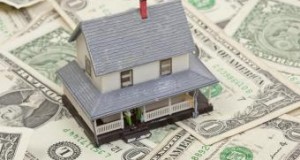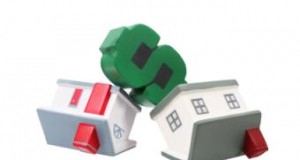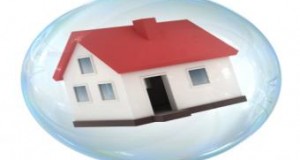April marked the second consecutive month of monthly home price gains but posted a 2.4 percent decline year-over-year, according to FNC├â┬ó├óÔÇÜ┬¼├óÔÇ×┬ós Residential Price Index. However, FNC notes that the yearly decline ├â┬ó├óÔÇÜ┬¼├àÔÇ£marks the slowest pace of price declines since the housing crash.├â┬ó├óÔÇÜ┬¼├é┬Ø FNC, an appraisal technology provider, recorded a 0.6 percent price increase in April based on prices in the 100 largest metropolitan areas. FNC relies on public records and real-time appraisals of neighborhoods and properties. Some cities to experience declines in April do not appear to be anomalous.
Read More »Freddie Mac’s Portfolio Shrinks Despite May Growth
Increases in all aspects of Freddie Mac├â┬ó├óÔÇÜ┬¼├óÔÇ×┬ós total mortgage portfolio led to a higher (but still negative) annualized growth rate, according to the GSE├â┬ó├óÔÇÜ┬¼├óÔÇ×┬ós Monthly Volume Summary for May. The summary showed that Freddie Mac's total mortgage portfolio for the month shrank at an annualized rate of 9.4 percent, a drop from 14.1 percent in April but still far above March├â┬ó├óÔÇÜ┬¼├óÔÇ×┬ós 2.9 percent contraction rate. The negative annualized growth rate YTD is 6.8 percent. Liquidations dropped immensely - by negative $45.4 billion.
Read More »Mortgage Fraud Ticked Up in First Quarter: Report
Although mortgage fraud activity seems to be leveling off, a report from MortgageDaily.com showed that mortgage fraud continues to cause foreclosure problems for the most victimized states. The Mortgage Fraud Index, which reflects mostly criminal cases involving law enforcement and court proceedings, showed that mortgage fraud crawled up in the first quarter of 2012. The index was 1151, slightly above Q4 2011├â┬ó├óÔÇÜ┬¼├óÔÇ×┬ós 1141 index. The highest recorded index was 2790 in fourth-quarter 2008. According to the website, most of the cases involve crimes committed five or more years ago.
Read More »Shortage of Distressed Properties Fueled Existing Sales Drop
The drop in existing home sales reported by the National Association of Realtors Thursday likely stemmed from a lack of distressed properties on the market, according to IHS Global Insight. In May, existing-home sales fell to a seasonally adjusted annual rate of 4.55 from 4.62 million in April, which is a monthly decline of 1.5 percent, the NAR reported. Existing home sales were still up from a year ago in May 2011 by 9.6 percent. According to the NAR report, investor purchases made up 17 percent of homes sales in May, down from 20 percent in April and 19 percent in May 2011. The report also revealed that distressed home sales, or foreclosures and short sales, declined monthly and yearly as well.
Read More »Experts: Housing Will Bottom Out in 2013
Experts surveyed by Zillow expect home prices to decline slightly in 2012, and predict they will bottom in 2013, according to the June 2012 Zillow Home Price Expectations Survey. The survey included 114 respondents with backgrounds ranging from economists, real estate experts, and investment and market strategists. The respondents├â┬ó├óÔÇÜ┬¼├óÔÇ×┬ó June prediction for home prices is that they will fall 0.4 percent in 2012, and then rise by 1.3 percent in 2013. In 2014, they expect home prices to rise by 2.5 percent, then rise by 3 percent in 2015.
Read More »Why Rising Student Debt Could Signal Growth for Housing
An analysis of government data by the National Association of Home Builders revealed another issue that can be added to the list of economic changes caused by the housing slump: Rising student loan debt. Data shows that the onset of the housing crisis brought with it an increase in students taking out loans for higher education. Since the third quarter of 2008, student loan debt has increased by 47.9 percent ($293 million). This increase is attributed to the drop in the availability of home equity loans, according to the NAHB.
Read More »Mortgage Demand Picks Up for Ellie Mae in May
Demand for mortgages increased in May, according to a report released by Ellie Mae Wednesday. The Origination Insight Report for May 2012 showed that the average loan-to-value on closed loans jumped up above the 80 percent mark for the first time since the company began tracking in August 2011. Ellie Mae attributed the increase to an easing of LTVs on conventional refinances. The average LTV on conventional refinance in May was 72 percent, a slide up from April's 69 percent. Closed conventional refinances with LTVs of 95 percent or higher jumped up to 11 percent in May.
Read More »How Over-Optimistic Homebuyers Could Inflate Next Bubble
Renters and first-time homebuyers want more amenities in their first homes and generally feel a sense of optimism that outpaces the reality in a slowly recovering housing market ├â┬ó├óÔÇÜ┬¼├óÔé¼┼ô a disconnect that could set the stage for the next housing crisis. Those are the findings that real estate company Trulia unveiled in an American Dream survey it released Wednesday. Of 86 markets in the 100 largest metro areas, 61 percent, or nearly two-thirds, of Americans believe that home prices will rise over the next year, according to the company.
Read More »Fannie: Economy Slows, Modest Growth Still Expected
The revised figures for economic growth in the year's first quarter were disappointing, but Fannie Mae's Economic & Strategic Research Group is still forecasting moderate growth for the remainder of 2012. A report released by the group Tuesday projected 2.2 percent growth for all of 2012. Several factors presented risks to the economic outlook, including a slowing trend in job growth and potential contagion in the euro zone from Greece's financial issues. Consumer attitudes also influence the economic outlook.
Read More »Monthly Gains Just a Silver Lining for Home Prices: RadarLogic
While other experts and analysts have concluded home prices are on the rise and the recovery is under way, Radar Logic released a report challenging the upbeat viewpoint. The argument made by Radar Logic is that as buyers absorb the supply of homes for sale in certain markets and prices start to stabilize as a result, home owners who have been waiting on the sidelines to sell will do so once prices start to improve. This will increase supply once again, and home prices will stop appreciating as supply exceeds demand. Home values decreased by 0.8 percent year-over-year in April 2012.
Read More »
 theMReport.com Your trusted source for mortgage banking news
theMReport.com Your trusted source for mortgage banking news








